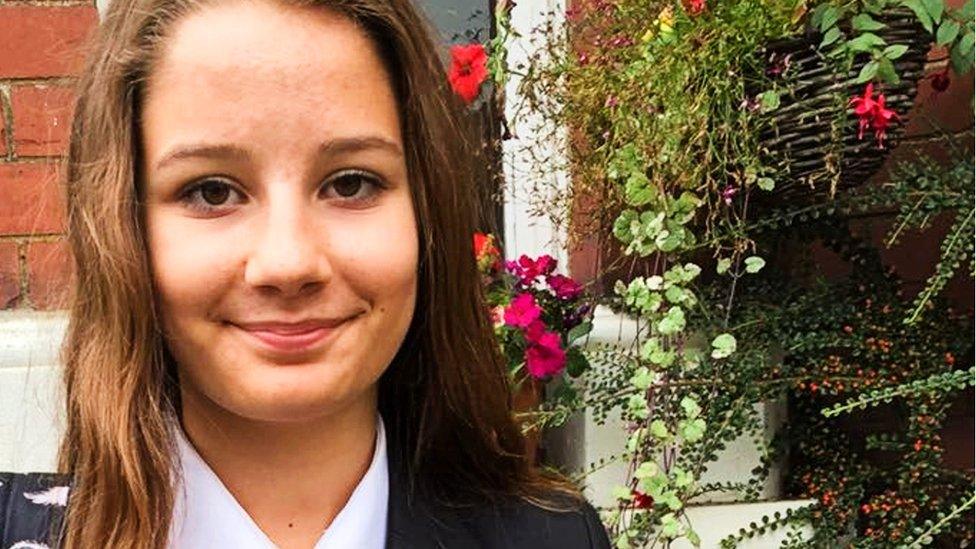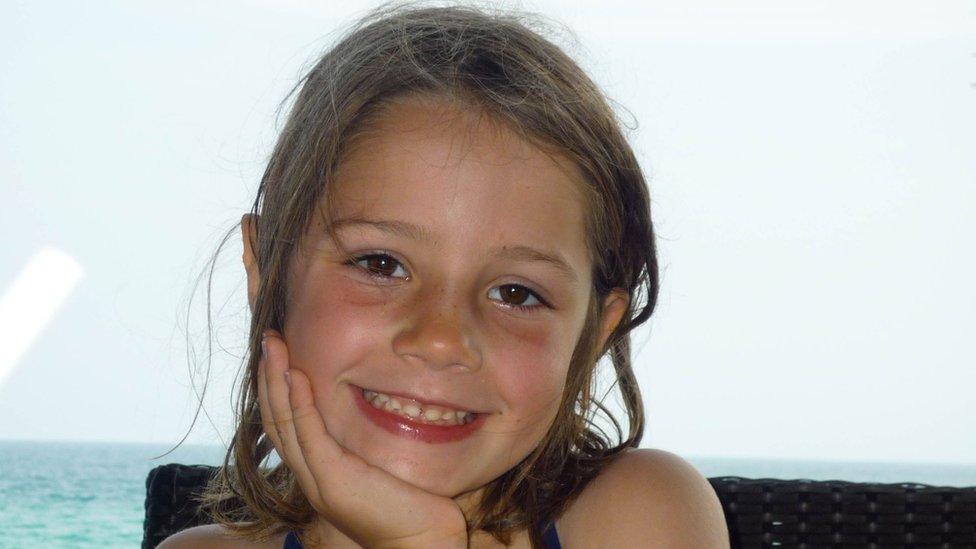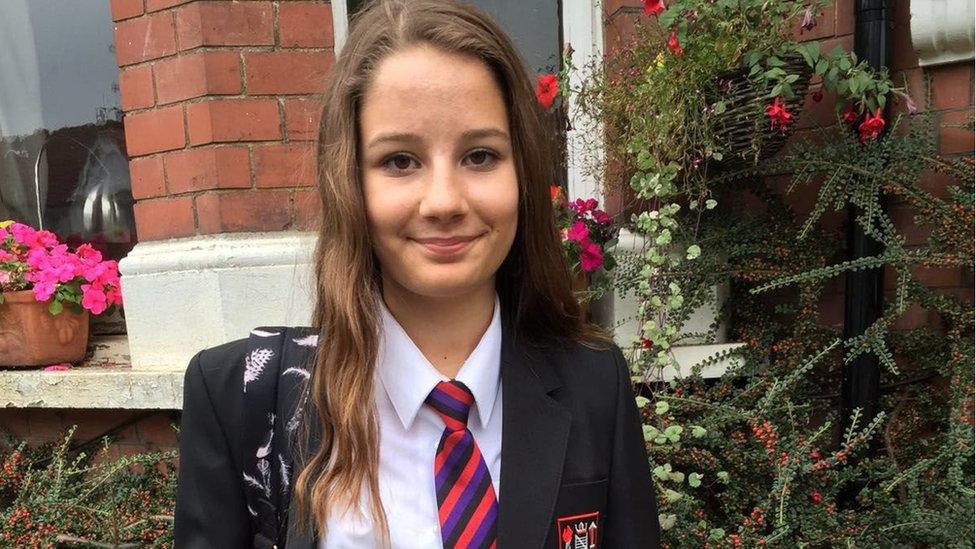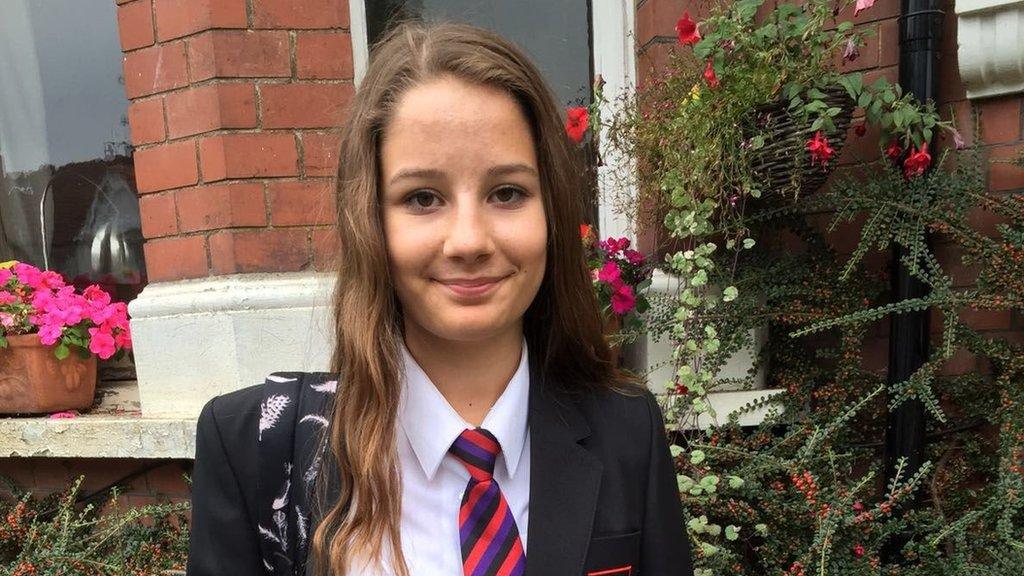Molly Russell: Posts left psychiatrist unable to sleep - inquest
- Published

Molly Russell's father previously told the court she had entered the "bleakest of worlds" online before her death
A child psychiatrist was "not able to sleep well" after seeing self-harm material viewed on social media by a 14-year-old girl who went on to take her own life, an inquest has heard.
Molly Russell engaged with thousands of such posts before her death in 2017.
Dr Navin Venugopal said the "very disturbing" content Molly had engaged with would "certainly affect her and made her feel more hopeless".
Molly wrote a note before she died, which was "very sad", the doctor said.
Giving evidence at North London Coroner's Court, Dr Venugopal said he saw no "positive benefit" to the material viewed by the teenager, who was from Harrow, in the months before she died.
Under questioning from coroner Andrew Walker, the psychiatrist said: "This material seems to romanticise, glamorise, and take the subject of self-harm, take it away from reality and make it seem almost unreal, take away from these terrible acts any kind of consequence."
The coroner asked: "You have looked at the material, do you think that the material that Molly viewed had any impact on her state of mind?"

Molly used her Instagram account up to 120 times a day
Dr Venugopal replied: "I suppose I will start off, I will talk about the effect the material had on my state of mind. I had to see it over a short period of time and it was very disturbing, distressing.
"There were periods where I was not able to sleep well for a few weeks so bearing in mind that the child saw this over a period of months I can only say that she was [affected] - especially bearing in mind that she was a depressed 14-year-old.
'More hopeless'
"It would certainly affect her and made her feel more hopeless."
The witness was then shown a number of videos viewed by Molly on Instagram, followed by a note written by the teenager on her phone two days after watching one clip, which used "identical language".
Dr Venugopal told the court: "If they are of that mindset and are seeing these sorts of things, it could have an impact."
The head of health and well-being at Instagram's parent company Meta and the global head of community operations at Pinterest have both apologised at the inquest for content that Molly viewed.
Meta executive Elizabeth Lagone has previously said at an earlier hearing that she believed posts the Russell family argued "encouraged" suicide were "safe" when the teenager viewed them.
Pinterest's Judson Hoffman was previously asked by the family's barrister if the platform accepted that in 2017, when Molly was using it, it "wasn't safe", and Mr Hoffman replied: "That's correct."
The inquest, expected to last two weeks, continues.
Related topics
- Published26 September 2022

- Published23 September 2022

- Published22 September 2022

- Published21 September 2022

- Published20 September 2022

- Published2 September 2022

- Published6 February 2019
